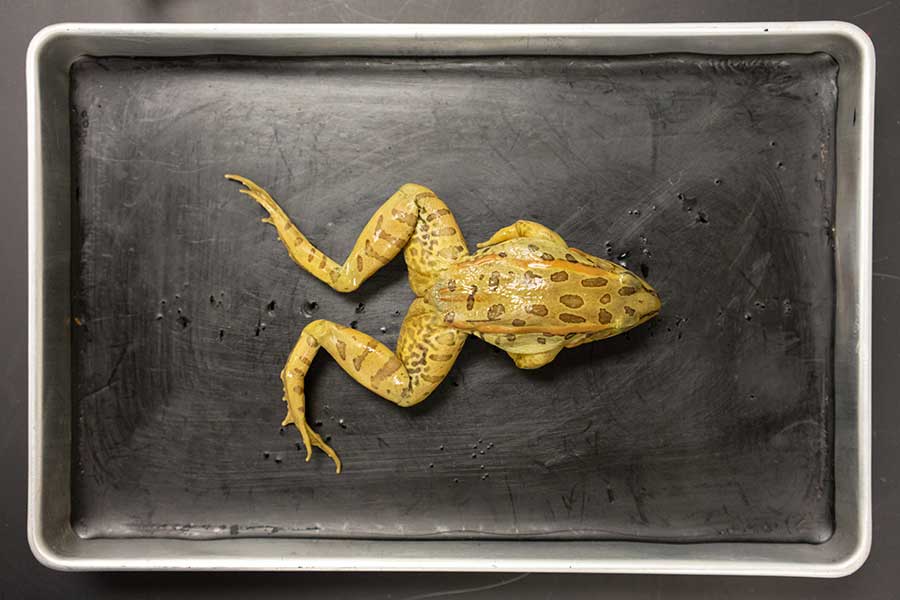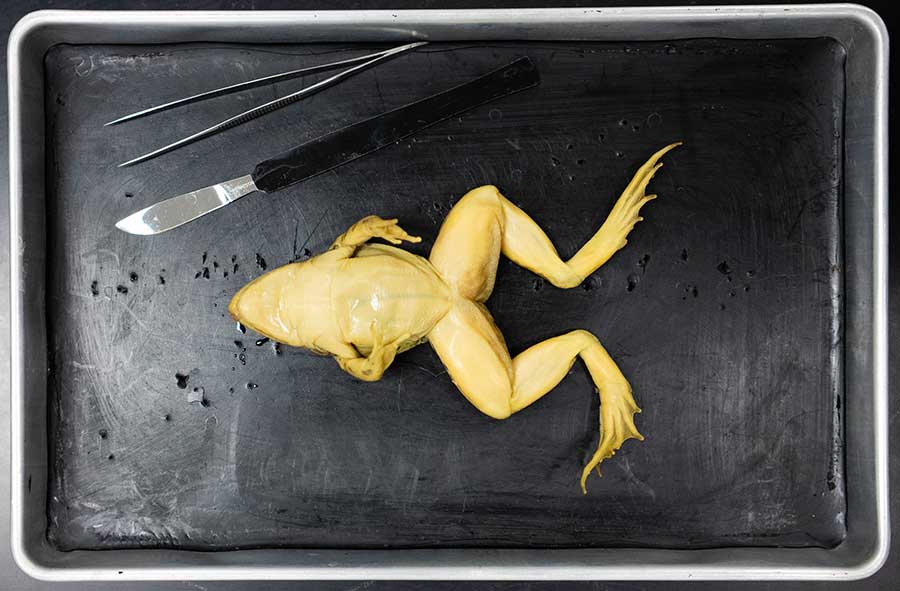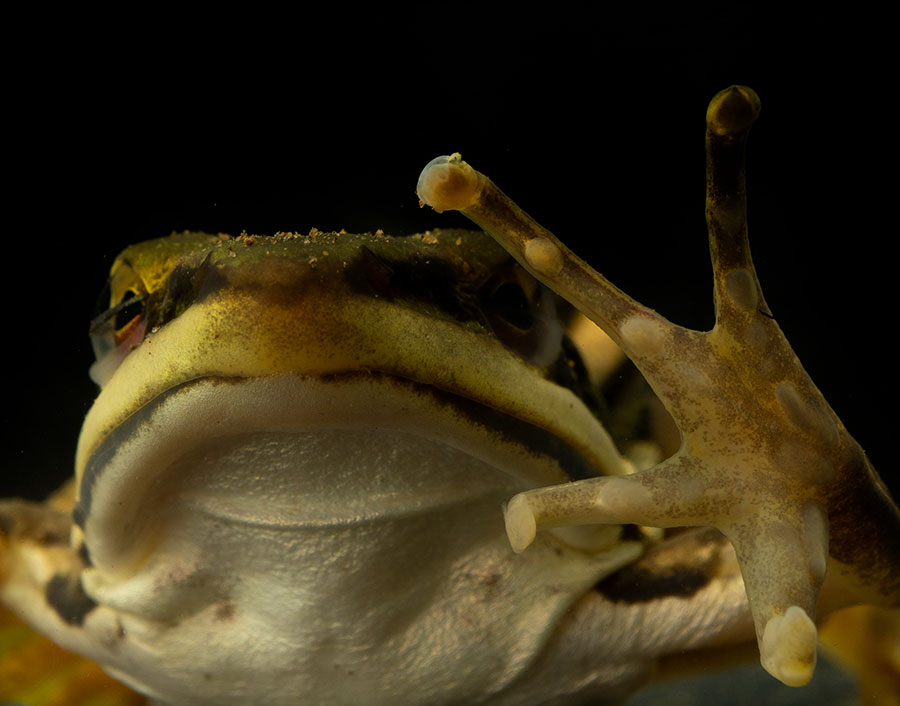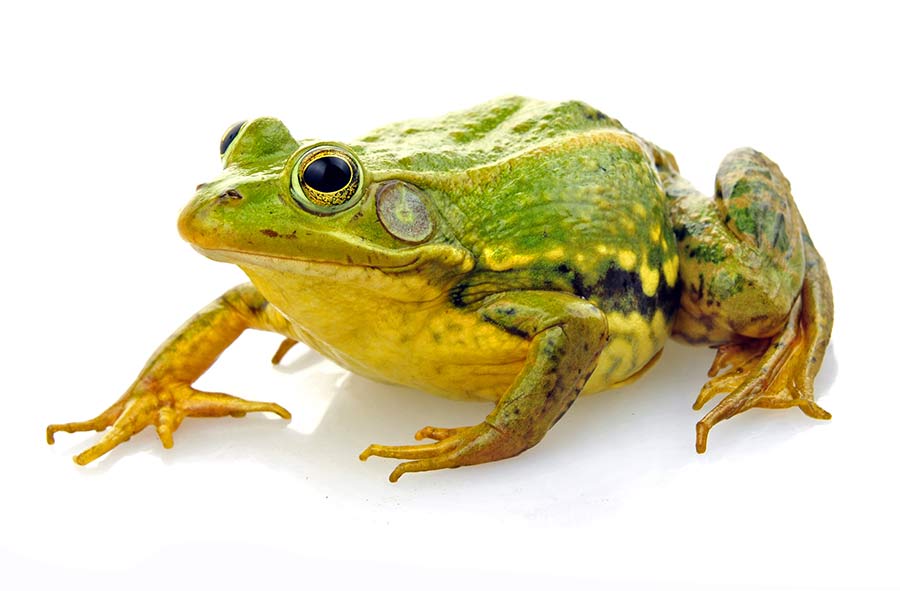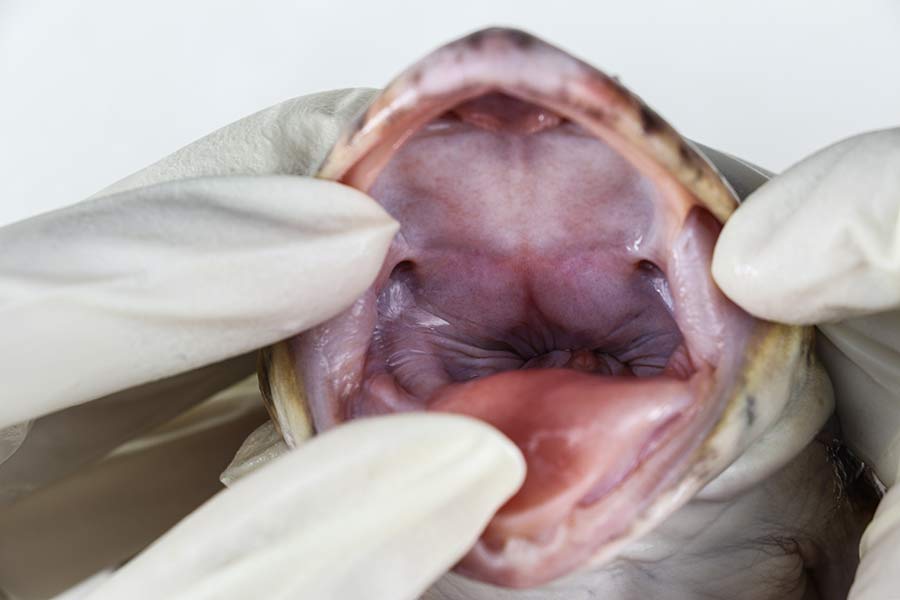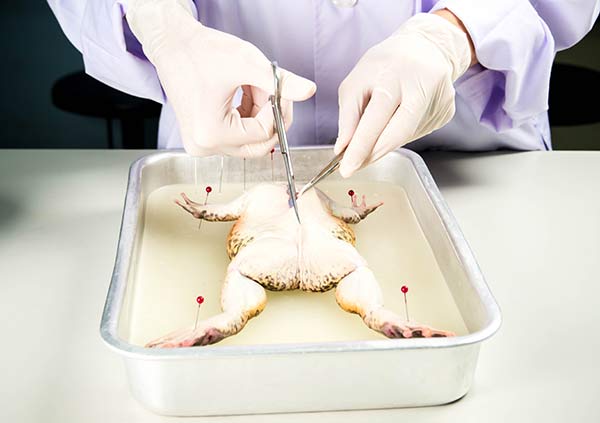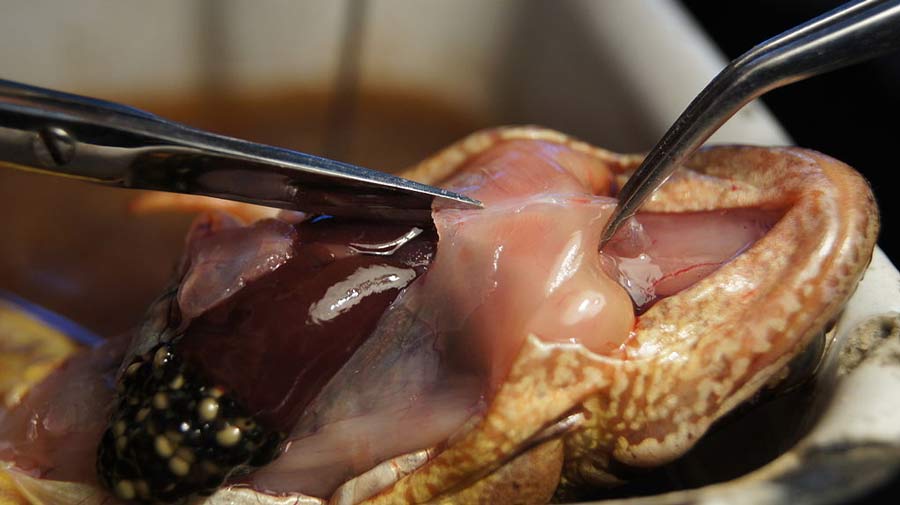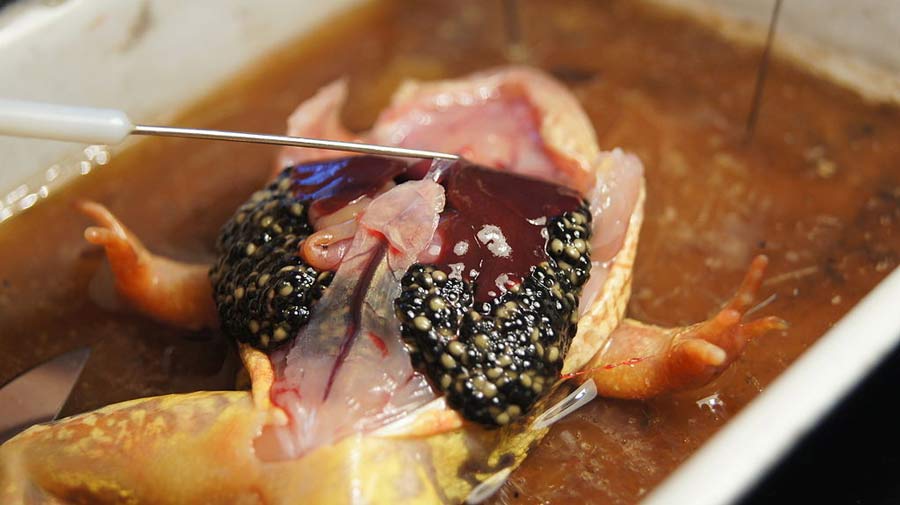In this virtual frog dissection, you will observe some of the external features and internal organs of a frog specimen. First, study each slide to begin making observations about the parts of a frog. You can click on each slide
image to see a larger view.

|
The Skin
The first step is to place the specimen on the dissecting tray.
Dorsal Side
Ventral Side
Question
Compare the dorsal (back) and ventral (underneath) sides of the specimen. How does the skin on each side compare?
The skin on the dorsal side is darker and has different colored lines and blotches. The ventral side skin is lighter and all one color.
The Appendages
The next step is to study the appendages.
Front Limb
Hindlimbs
Question
Compare the front limbs and the hindlimbs on the specimen. How many toes are on each? Are they webbed?
The front limbs have 4 toes and are not webbed. The back limbs have 5 toes and are webbed.
The Head
The next step is to study the external features of the head.
Question
Locate the following parts on the frog head image below: tympanic membrane (ear) and nares (nostrils).

Inside of the Head
The next step is to open the mouth wide and study the structures that are inside the head.
View 1
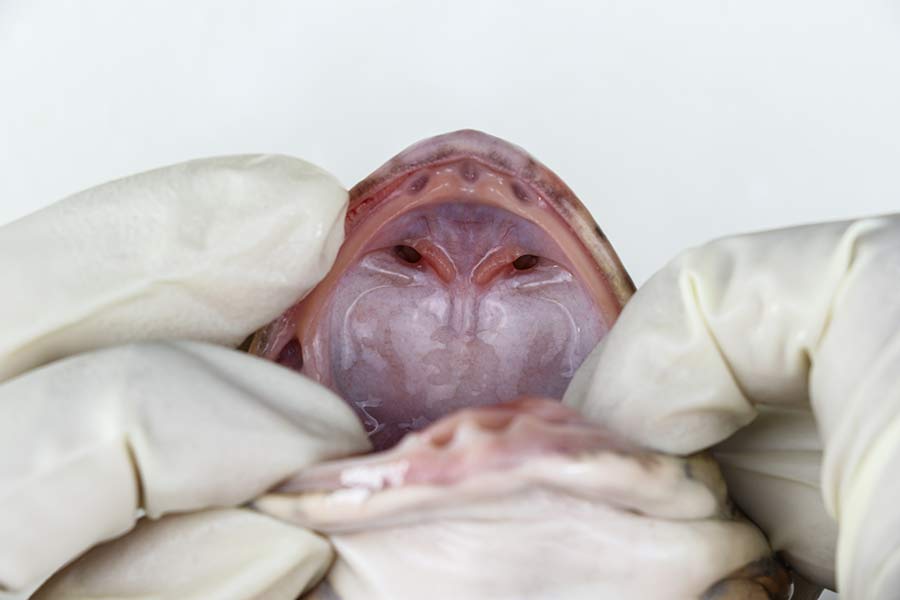
View 2
Use the diagram to answer each question. Click the question to check your answer.
The internal nares, or nasal passages, are located inside the head of the specimen. Which letter on the diagram corresponds with them?
|
D
|
The vomerine teeth are inside the head also. These are two rough bumps in the upper facial bone used to capture and hold prey. Which letter on the diagram
corresponds with them?
|
C
|
The eustachian tube openings are located on the sides of the head, leading to the middle ear, and eventually to the tympanic membranes. Which letter on the diagram
corresponds with them?
|
E
|
The maxillary teeth are located around the edge of the mouth and are used for holding prey. Which letter on the diagram corresponds with them?
|
B
|
The esophagus is the tube that connects the mouth and the stomach and is located at the back of the mouth at the base of the tongue. Which letter on the diagram
corresponds with them
|
A
|
Under the Skin
The next step is to pin the limbs securely in the dissecting tray, with the ventral side facing upward. Then, make one longitudinal cut down the middle and two horizontal cuts near the arms.
View 1
View 2
Question
After carefully cutting the skin, gently lift it back to expose the layer just underneath. Which layer is exposed just under the skin?
A layer of muscle is exposed just under the skin.
Inside the Body
In this step, cut the layer of muscle under the skin the same way you cut the skin and gently lift away this layer to reveal the inside of the body.
Cutting Open the Muscle
Lifting Back the Muscle
Question
This specimen is female and is gravid with eggs. Where are the eggs located in the specimen?
The eggs are in the lower sides of the abdominal cavity just under the muscle layer.
|

|
